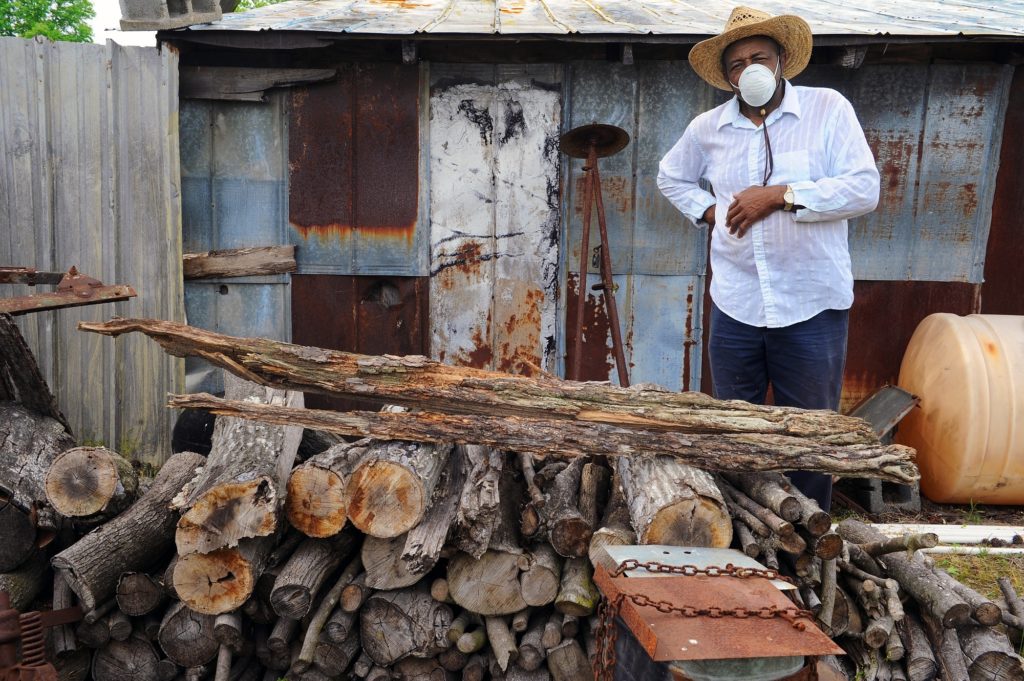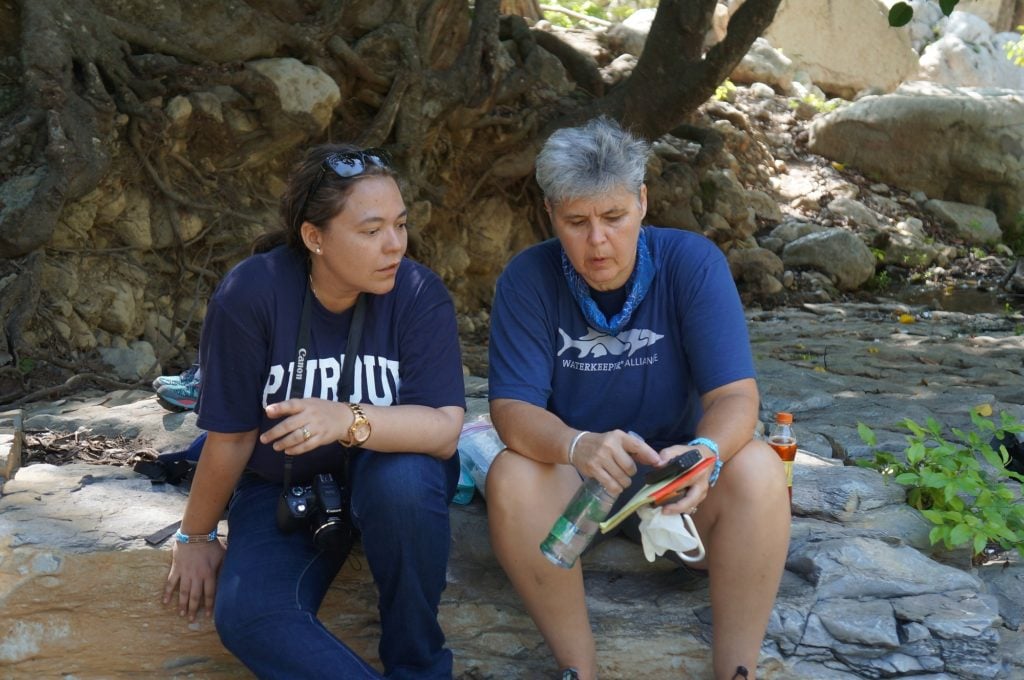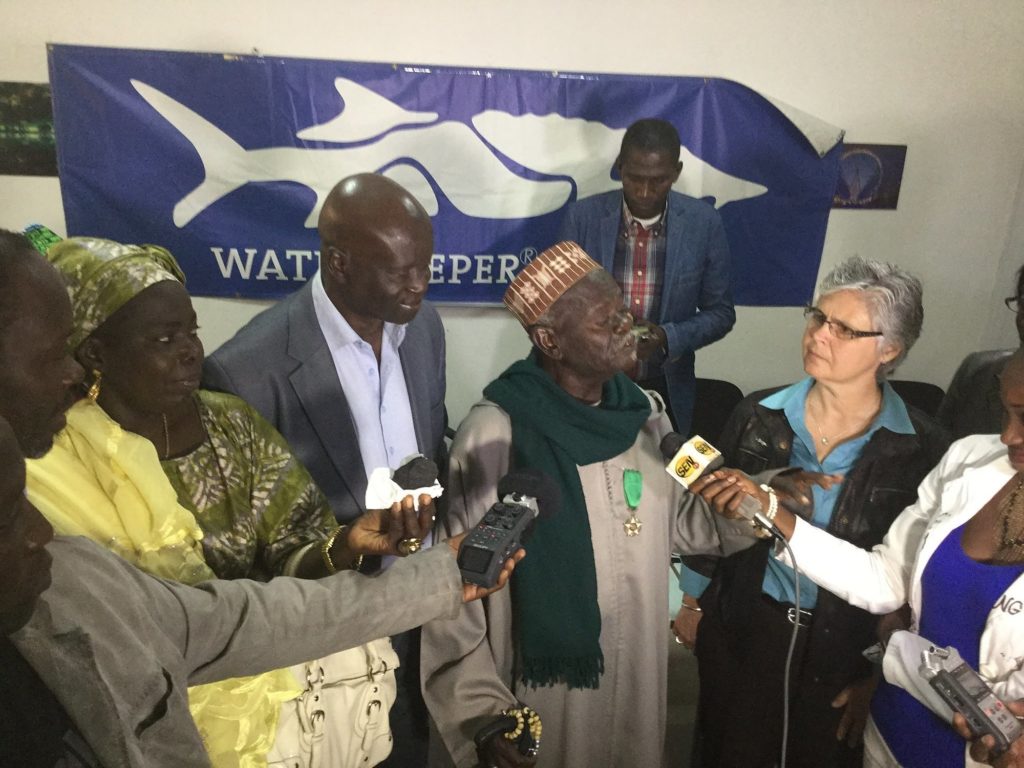President’s Letter: Uncommon Heroes Fighting for Our Common Home
By: ajcarapella

What do poor and indigenous communities in northeast Colombia’s coal-mining regions, African-American and Latino communities in rural North Carolina, and the residents of fishing villages on Senegal’s Atlantic coast all share?
They are victims of environmental racism. They are also, as you can read in this issue of Waterkeeper magazine, being helped in their struggles for environmental justice by Waterkeeper Alliance and local Waterkeeper organizations.
It’s no secret that polluting industries and industrial-waste sites are often located in communities that offer the least resistance. It is one of the ironbound laws of life that pollution and the direst environmental consequences gravitate to communities with the least political and economic power, that the worst pollution plagues the least powerful. Forcing people without much political voice or economic clout to bear the burden of pollution, disease and misery is most certainly a form of racism.
In the United States, the costs of pollution are borne disproportionately by African Americans, Latinos and Native Americans. It is they who get stuck with too many power plants and oil refineries, waste-transfer stations and toxic-waste and garbage dumps. It is they who suffer higher infant mortality, poorer health and shorter life spans, lost jobs and resources, and a greatly diminished quality of life.
Here are just a few examples:
• People of color are nearly twice as likely as others to live in areas with dangerous industrial pollution, according to a 2006 study. The lower the average income, the higher the risk.
• California’s most polluted zip code is East Los Angeles, an overwhelmingly Latino community.
• Native American lands and sacred places are often sites of extensive mining operations, and millions of tons of radioactive uranium tailings have been dumped on Navajo lands, one result of which has been astronomically higher rates of sexual-organ cancer among Navajo teenagers than the national average.
• Latino farm workers suffer more chemical-related injuries and illnesses than any other workforce in the nation, due to pesticide exposure. According to U.S. EPA estimates, 10,000 to 20,000 farmworkers are poisoned annually and suffer long-term effects that can result in cancer, neurological disorders, hormonal and reproductive health problems, including infertility, and birth defects.
• Pollution-related asthma is killing African Americans in unprecedented numbers – five times the rate of whites – and New York’s predominantly African-American Harlem neighborhood has the highest rate of asthma in the United States. According to the Centers for Disease Control, asthma rates for black children increased 50 percent between 2001 and 2009.
• In North Carolina, industrial hog facilities, known as concentrated animal feeding operations or CAFOs, have been disproportionately located in African-American and Latino communities, where residents are forced to endure odors, seriously degraded water quality and the embarrassment associated with the facilities operating near their homes.
The destructive effects of environmental racism are not, however, exclusive to the United States. Everywhere in the world, the poor and the marginalized are bearing the greatest burdens from pollution, ecological destruction and climate change. In many places where poor and indigenous people live, oil, coal and other minerals are being extracted in ways that are devastating their lands and destroying their cultures and livelihoods.But justice may finally be on the way, thanks in large part to the work of North Carolina’s Waterkeepers and Waterkeeper Alliance staff members Rick Dove, Larry Baldwin and Gray Jernigan. In late 2014, Waterkeeper Alliance filed a complaint with the U.S. EPA’s Office of Civil Rights alleging that lax regulation of hog-waste disposal by the North Carolina Department of Environment and Natural Resources discriminates against communities of color in eastern North Carolina. As a result, the EPA is undertaking a broad investigation of the CAFO industry in that region.

This is certainly the case in northeast Colombia, where multinational coal companies operate gigantic open-pit mines in the La Guajira and Cesar Departments. The people who have lived there for decades, in some cases centuries, are mostly Afro-Colombian and indigenous peasants who have survived by farming, hunting, fishing and day labor. Multinational mining came to La Guajira in the 1980s and to Cesar in the 1990s. Since then, these communities have had to endure pollution and poisoning of their lands and waters, profound social and cultural disruption, forced displacement, and a reign of terror imposed by military and paramilitary forces that has wrought harassment, death threats, murders and massacres.
In La Guajira, expansion of a single mine, the Cerrejón, which is one of the largest open-pit mines in the world, has resulted in the forcible displacement of 17 villages.
Bocas de Ceniza Waterkeeper Liliana Guerrero is leading the fight for the rights of these communities, working to stop the destruction that multinational coal companies have caused. And she is doing so at great personal risk, for Colombia ranks second in the world in murders of environmental activists.
For more than two decades, Mbacke has been a leader in the battle against industrial pollution in Hann Bay that has impoverished fishermen, sickened villagers and fouled its beaches. But only within the last couple of years, through his work with Waterkeeper Alliance’s international team of coal campaigners led by Donna Lisenby, has Mbacke learned how to oppose the coal industry.“I do not deny my fears,” she says. “I do not want to add my name to the list of environmental activists in Colombia who have been assassinated, but those of us who work to protect the environment and the victims of coal mining and coal transport must accept the risks.” In Senegal, a multinational company planned to build a coal-fired power plant near the small fishing village of Bargny on Hann Bay, just south of the capital city of Dakar. Mbacke Seck, who heads Hann Baykeeper, the first Waterkeeper organization in Africa, organized opposition to the project.

“In two years,” Donna says, “Mbacke has gone from not having the expertise to advocate against coal to becoming a recognized leader in Senegal who is skilled at gaining the attention of local media and at using ‘people power’ in the movement to stop the construction of coal-fired power plants.”
Following protests over the plant near Bargny, development banks in Africa and the Netherlands halted funding for the project, while seeking further information on the scope of environmental and social impacts – impacts that the campaign against the coal plant had brought to light.
“Thanks to Waterkeeper Alliance,” Mbacke has commented, “my voice now carries across my country.”
These stories vividly illustrate that substantial change is emerging from the bottom up in the struggle against environmental racism. By demanding that societies around the world make fairer and more rational choices for their least powerful citizens, the environmental-justice movement is rooting the larger environmental movement in the fight for a more just world.
No one has articulated that connection more powerfully than Pope Francis in his encyclical Laudato Si’. “A true ecological approach,” Francis writes, “always becomes a social approach; it must integrate questions of justice in debates on the environment, so as to hear both the cry of the earth and the cry of the poor.”
From the title to the closing prayer, the pope’s prophetic challenge to the powerful is deeply rooted in the spirituality of St. Francis of Assisi, with its deep reverence for God’s creation and for the poor and suffering of the world.
His is a way of looking at the world that seems perfectly suited to this present time, in which the most pressing issues we face are global poverty and inequality and a planetary environmental crisis.It is a spirituality in which my own life is deeply rooted; my father and I were named for St. Francis and he has always been a guidepost in my life and my work.
Waterkeeper organizations around the world have been and will continue to be impassioned advocates against the insidious erosion of democratic principles that occurs when the well-being of the many are sacrificed for the interests of the few.
Only by nurturing and encouraging an authentic social movement that regards the preservation of the natural world as part of the larger struggle for, in Pope Francis’s words, “our common home,” will we solve our present predicament.
Waterkeeper Alliance is proud to be a full partner in that struggle.